- Details
- Written by: Kamran Mofid
- Hits: 1542
First Publishedon 05 February 2021. Updated on 06 October 2024
‘To detach nature from economic reasoning is to imply that we consider ourselves to be external to nature.’
'Our economies, livelihoods and wellbeing all depend on our most precious asset: nature. We are part of nature, not separate from it.'

Earth seen from above.- Photo:nasa.gov
‘Respected Mother, you have children who are proud of themselves as brilliant mathematicians, skilled artisans, gifted architects,{genius economists, the know it all academicians- Emphasis added} but few are able to see that you are the greatest mathematician, the most accomplished artisan,the most talented architect, and {the wisest economic teacher that has ever been- Emphasis added}. We only need to look at a branch of cherry blossoms, the shell of a snail, or the wing of a bat to see this truth. We have talented artists, but how can our paintings be compared to the works of art that you reveal to us in the four seasons? How can we paint such compelling dawns or create such radiant dusks? Our musicians are geniuses, but how can our songs measure up to your wondrous orchestra of Earth and Sky, or the magnificent sound of the rising tide? We have brave soldiers, knights, and heroes who have endured extreme heat and cold and traversed mountains and rivers, but how many of us have your patience and capacity to embrace? We have great love stories, but who among us has your immense love that includes all beings without discrimination?’- Adapted from Love Letter to the Earth by Thich Nhat Hanh- Continue to read HERE
Economics and a sustainable world: What to teach our students?
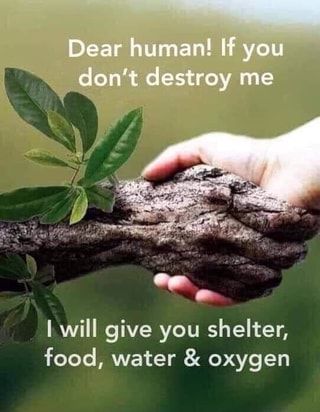
Photo: Via Pinterest
Nota bene
‘In all my academic life, spanning over four decades, I have been dismayed, frustrated and overwhelmed with pain to notice that our education model has not embraced the beauty and the wisdom of our mother nature and our sacred earth, incorporating them into the teaching curriculum.
This, to my mind, has seriously deprived the students, our future leaders, or indeed, our current leaders, to get a wholesome, values-led education, and thus, has prevented them, to vision and implement policies to heal our world, to better our lives.’
At times of chaos, crises, and disorder, as it is today, in this rapidly changing world, faced with many environmental challenges, ecological degradation, and social inequalities, to name but a few, the role of economics education in shaping and inspiring students- our future leader- is more critical than ever. If we wish to aspire them to become the architects and builders of a sustainable future, it is essential to (re)evaluate what we teach our students about economics and its implications for the world we live in.
My Plea to my fellow academic economists: Make your classrooms the regions of hopes, dreams, kindness, empathy, and beauty and let poets and philosophers of love be your sources of inspiration in all you do and in all you teach.
You should open your eyes and look beyond economics to the beauty and wisdom of Mother Nature and in the timeless, precious words of William Wordswoth, ‘Let Nature be Your Teacher’ and ‘Make Economics ‘A Thing of Beauty’ and Build a Better World’.
This moment creates an opportunity to bring about a better future for ourselves, our children, and grandchildren
An open letter to all my fellow academic colleagues: Make Education ‘A Thing of Beauty’
World in Chaos and Despair: A Manifesto for Education to Build a Better World
World in Chaos and Despair: Let Wordsworth be Your Teacher
Journey to Healing: Let Me Know What is Essential
Detaching Nature from Economics is ‘Burning the Library of Life’

Photo credit: Ancient World Magazine
‘We are facing a global crisis. We are totally dependent upon the natural world. It supplies us with every oxygen-laden breath we take and every mouthful of food we eat. But we are currently damaging it so profoundly that many of its natural systems are now on the verge of breakdown. Every other animal living on this planet, of course, is similarly dependent. But in one crucial way, we are different. We can change not just the numbers, but the very anatomy of the animals and plants that live around us. We acquired that ability, doubtless almost unconsciously, some ten thousand years ago, when we had ceased wandering and built settlements for ourselves. It was then that we started to modify other animals and plants…
‘Economics is a discipline that shapes decisions of the utmost consequence, and so matters to us all. The Dasgupta Review at last puts biodiversity at its core and provides the compass that we urgently need. In doing so, it shows us how, by bringing economics and ecology together, we can help save the natural world at what may be the last minute- and in doing so, save ourselves.’- These are the opening and the concluding paragraphs of The Foreword by Sir David Attenborough to a landmark study ‘The Economics of Biodiversity: The Dasgupta Review’ published February 2021.
"We need a new way of thinking, one that tightly links the human-made world of economics and politics with the natural world of climate and biodiversity and with the designed world of 21st century technology. Consider my own home field of study, economics. Sometime in the 19th century, economics largely dropped its traditional attention to land, water and food, as industry replaced agriculture as the leading economic sector. Economists decided, by and large, that they could ignore nature – take it “as given” – and instead focus on market-based finance, saving, and business investment. Mainstream economists derided the claims of “limits to growth.”
“Of course this was never correct; economies have always depended on what we now call “natural capital.” Yet the complete separation of economics and nature was the predominant way of economics thinking and teaching until very recently. Libertarian free-marketers in the US and UK hold to this day that climate change must be a hoax because if it were true it would overturn the laissez-faire economic philosophy”- Jeffrey Sachs, former director of The Earth Institute, Columbia University and author of The Age of Sustainable Development
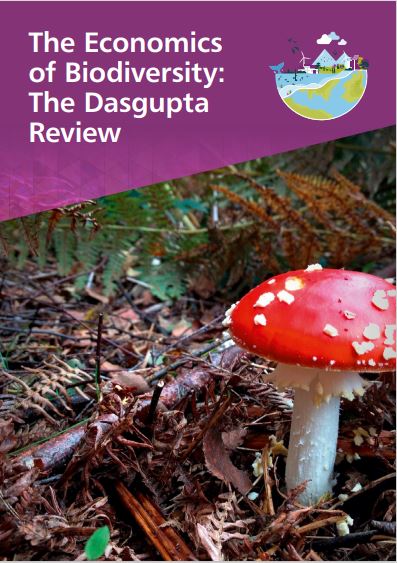
Photo: Gov.UK
‘We are embedded in Nature” and “nature is more than a mere economic good’
‘Nature nurtures and nourishes us, so we will think of assets as durable entities
that not only have use value, but may also have intrinsic worth’
The Dasgupta Review calls for urgent and transformative change in how we think, act and measure
economic success to protect and enhance our prosperity and the natural world.
'It’s time to say farewell to one of the biggest and longest running myths in the economy: that social development must come at the cost of nature.
That this dichotomy is false has long been articulated and promoted by the conservation movement, but to little avail.
Around the world, countries and businesses have continued to empty natural resources for short-term economic profit.
Now, more than ever, someone needed to tell them this cannot continue – but who would they listen to?
This is where the Dasgupta Review on the Economics of Biodiversity comes in.’- Prof. Alexandre Antonelli, Director of Science at Kew Gardens
Nature is our Greatest Life Asset

Photo: The Conversation
‘To detach nature from economic reasoning is to imply that we consider ourselves to be external to nature.’
'Our economies, livelihoods and wellbeing all depend on our most precious asset: nature. We are part of nature, not separate from it.'
These are the opening lines of a newly published landmark review of the economics of biodiversity.
The Economics of biodiversity review: what are the recommendations?

Photo: What is biodiversity and why does it matter to us?/ Via The Guardian
First and foremost: The report recommends that ‘GDP should be ditched as a measure of wealth and nature valued to protect wildlife and humans. The use of GDP “is based on a faulty application of economics” because it measures the flow of money, not the stock of national assets. Introducing natural capital into national accounting systems would be a critical step.’
Then the report notes that: ‘Instilling an appreciation of nature through education is vital in a rapidly urbanising world. The discipline to draw on nature sustainably must, ultimately, be provided by us as individuals. Many people have grown distant from nature. Our education systems should introduce nature studies from the earliest stages of our lives, and revisit them in secondary and tertiary education.’-- WOW! This is music to my ears!
Nota bene
Before I proceed further, I must note my happiness and joy of reading the two vitally important recommendations above, which have occupied my mind, my heart and my research over the last couple of decades. I have noted these in detail elsewhere. For the purpuse of now and this posting it suffices to note the following:
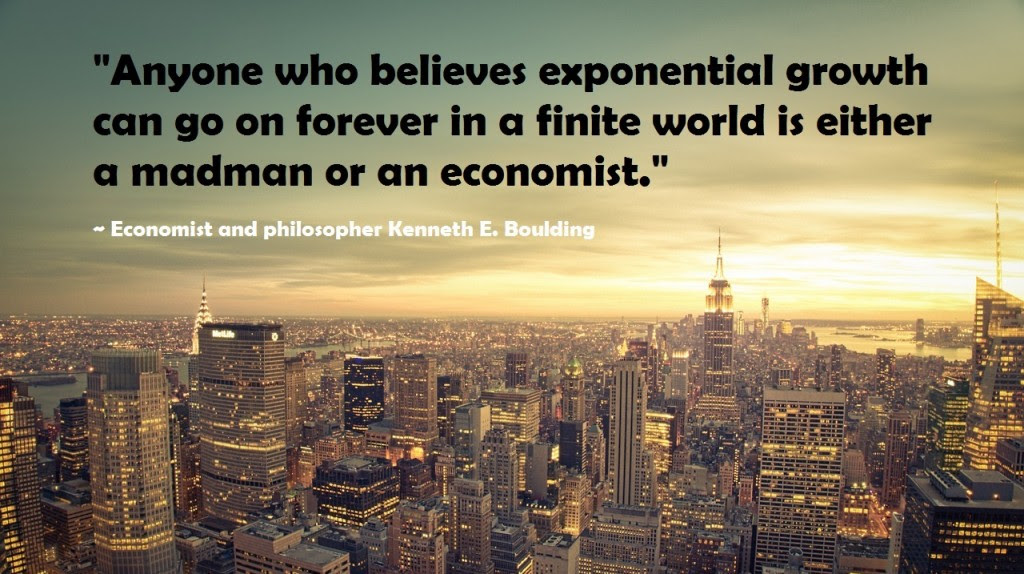
Photo:bing.com
The madness of the never ending economic growth
We have to look beyond the madness: we should invest in everyday services to create a society run for collective good
The Growth Delusion and Confusion, The GDP Measurement: lies, damned lies and statistics
We must do better, much better. Why?
Economic Growth: The Index of Misery
The Case for Degrowth: It is urgent, necessary, and greatly needed for our survival
......
Re-Connecting the World’s Children and Young People with Nature
‘When there is no Mother Nature Present- There is no Balanced, Values-led Education’
'Educating the mind without educating the heart is no education at all.'- Aristotle

Young children play on a tree on Hampstead Heath, London. Four out of five children in the UK
are not adequately'connected to nature'.- Photo: Gregory Wrona /Alamy/Via The Guardian
‘In all my academic life, spanning over four decades, I have been dismayed, frustrated and overwhelmed with pain to notice that our education model has not embraced the beauty and the wisdom of our mother nature and our sacred earth, incorporating them into the teaching curriculum.
This, to my mind, has seriously deprived the students, our future leaders, or indeed, our current leaders, to get a wholesome, values-led education, and thus, has prevented them, to vision and implement policies to heal our world, to better our lives.’- Kamran Mofid
The Time is Now to Explore the Benefits of Nature-Based Education in Our Teaching Models
By Forgetting Mother Nature- We have Now Ended Up with This unenviable World

Photo:bing.com
On the 250th Birthday of William Wordsworth Let Nature be our Wisest Teacher
In this troubled world let the beauty of nature and simple life be our greatest teachers
Nature the Best Teacher: Re-Connecting the World’s Children with Nature
A Sure Path to build a Better World: How nature helps us feel good and do good
Nature is the model to teach business how to thrive
The healing power of ‘Dawn’ at this time of coronavirus crisis
......
And now continuing with the Economics of biodiversity review: what are the main recommendations?
‘The world is being put at “extreme risk” by the failure of economics to take account of the rapid depletion of the natural world and needs to find new measures of success to avoid a catastrophic breakdown, a landmark review has concluded…
‘Prosperity was coming at a “devastating cost” to the ecosystems that provide humanity with food, water and clean air. Radical global changes to production, consumption, finance and education were urgently needed’
‘’The review urges the world’s governments to come up with a different form of national accounting from GDP and use one that includes the depletion of natural resources. It would like to see an understanding of nature given as prominent a place in education as the “three Rs”, to end people’s distance from nature.
‘Nature is our home. Good economics demands we manage it better,” said Dasgupta. “Truly sustainable economic growth and development means recognising that our long-term prosperity relies on rebalancing our demand of nature’s goods and services with its capacity to supply them. It also means accounting fully for the impact of our interactions with nature. Covid-19 has shown us what can happen when we don’t do this.’
‘Humanity’s impact on the natural world is stark, with animal populations having dropped by an average of 68% since 1970 and forest destruction continuing at pace – some scientists think a sixth mass extinction of life is under way and accelerating. Today, just 4% of the world’s mammals are wild, hugely outweighed by humans and their livestock.’
‘The report said almost all governments were exacerbating the biodiversity crisis by paying people more to exploit nature than to protect it. A conservative estimate of the global cost of subsidies that damage nature was about $4tn-$6tn (£2.9-£4.4tn) a year, it said. “Humanity faces an urgent choice. Continuing down our current path presents extreme risks and uncertainty for our economies.” the review said.
......
Ten Steps to Successfully Build the Library of Life
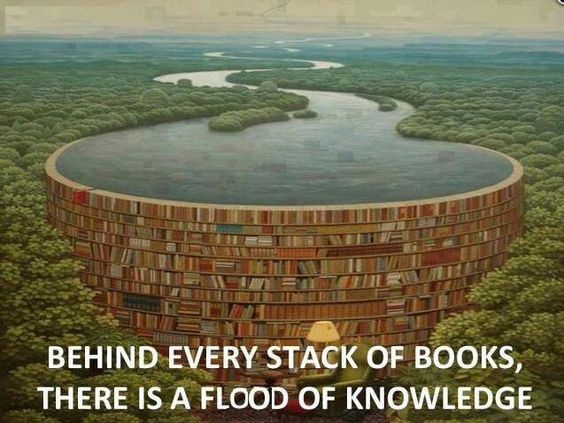
Photo: Dream world painting by Jacek Yerka webneel.com
- Details
- Written by: Kamran Mofid
- Hits: 1056

Photo: ArishaRay/Getty Images/iStockphoto
N.B. Although, this posting is about the tragedy of self-harm and suicide in children and young people in Britain, but, the tragedy, pain and hurt are global. The children and the youth of the world are in this together. I sincerely hope that this heartbreaking global challenge receives urgent attention by all concerned.
The rates of self-harm have increased in the UK over the past decade or so and are now among the highest in Europe. Moreover, the rates of self-harm are much higher among groups with high levels of poverty and deprivation and in adolescents and younger adults. Self-harm results in about 200,000 attendances at accident and emergency departments each year and is one of the top five causes of acute medical admission. Furthermore, given the pandemic, lockdowns, self-isolation, closure of schools and colleges, the continuing fallout of the inhumane and unjust neoliberal economic policies and austerity, which has resulted in abject poverty for the many, has now created a much higher rate of admission than ever before.
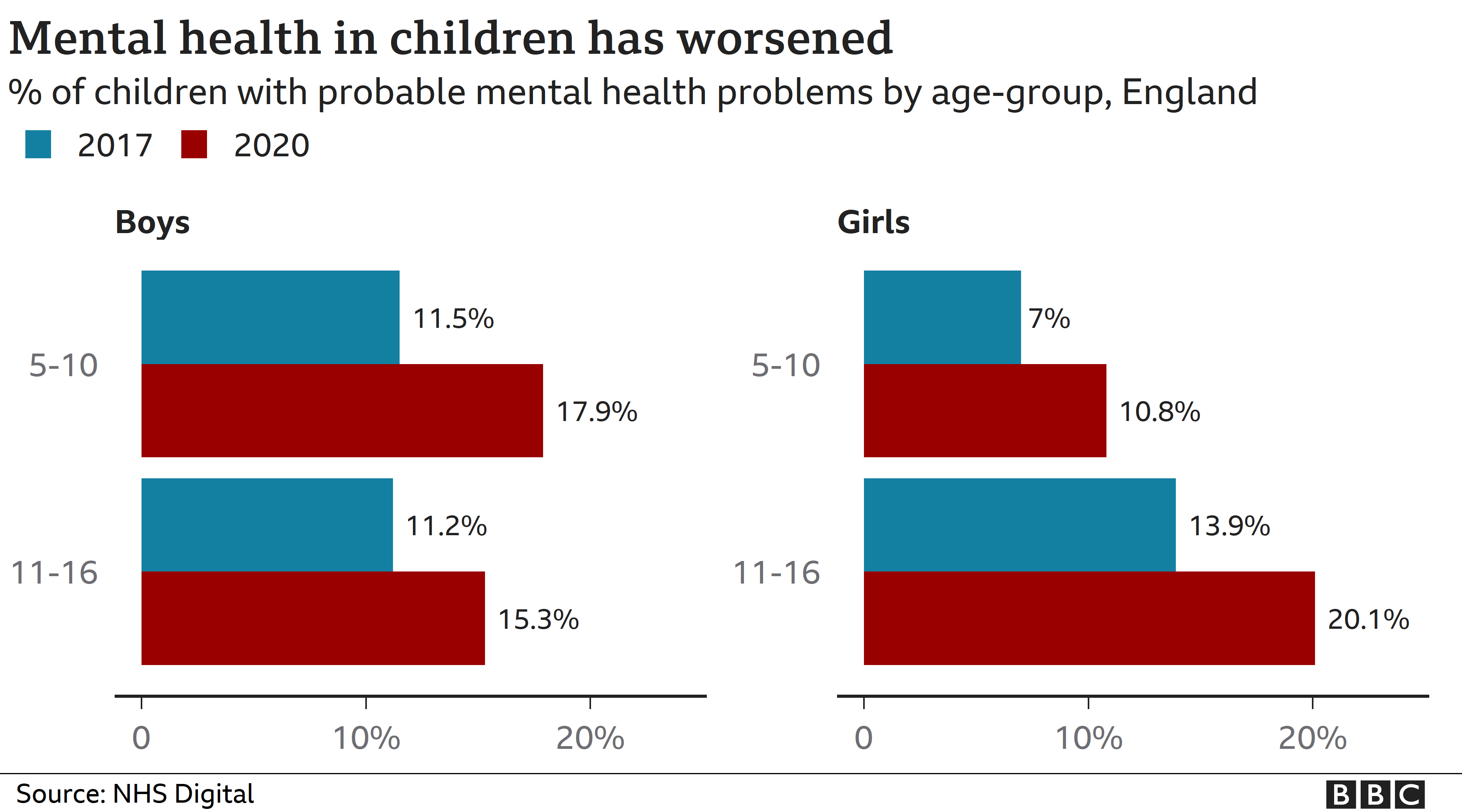
Today, reading my morning news, I was heartbroken and extremely saddened, but not surprised, to see the following headline:‘Coronavirus doctor's diary: We're getting self-harming 10-year-olds in A&E.’ to which I will return shortly.
The plight, struggles, hopes, dreams, health and well-being of children and the youth has always been very close and fundamental to all we do at the GCGI, as evidenced by the number of articles, postings, conferences and interviews and more by myself and other members of the GCGI family and friends.
To recall and to focus our minds, a selection of related postings from our archives are noted below:
Poverty, Destitution, Hunger and Homelessness in the Midst of Plenty
This is nothing, but a manifestation of a cruel and inhumane state of affairs
Lest We Forget
‘A country/nation drunk on market values, guided by cruel machinery of exploitation, racism, class division, austerity, cruelty, aggression, that humiliates it’s innocent, weak and vulnerable citizens, with neoliberalism, poverty, inequality and food banks and celebrates extreme individualism, feral competition, worship of mammon, rat-race to a success that it can never deliver and ignores the struggles and plight of its children and youth, ceases to be civilised and sooner or later ceases to exist morally or spiritually.’
Neoliberalism and the rise in global loneliness, depression and suicide
The scar on the conscience of Britain: The neglect of its children, youth, students and more
Child Poverty UK: The Shaming of the British Elites
The Report that should Shame us all: The Neglected and Abused Children in England
Austerity driven Homeless children put up in Shipping Containers in ‘Great Britain’
Eruption of anxiety, depression and suicide in Britain
An Open Letter to University Leaders: Students’ Mental and Emotional Wellbeing Must Be Our Priority
Student Suicides at Bristol University: My Open Letter to the Vice-Chancellor, Prof. Hugh Brady
The Broken Economic Model and the Inhumanity of the Lost Decade of Austerity
A Plea to address Global Youth Depression
Why Happiness Should be Taught at Our Universities
The Value of Values: Spiritual Wisdom in Everyday Life-Rosemary Dewan
My Guest Blogger Rosemary Dewan: Teachers’ Challenges
Investing in Our Children is Wise and Will Bring High Returns on Investment: A Close Look Into the Socioeconomic Status of Children in California (Jamshid Damooei)
Economic Efficiency and Ethical Behavior: Jamshid Damooei
My friend Jamshid Damooei and a greater, better, kinder America
OUR SACRED EARTH Tuscany Forum: The Videos
And now reverting back to: ‘Coronavirus doctor's diary: We're getting self-harming 10-year-olds in A&E.’
‘The pandemic has had a deep impact on children, who are arriving in A&E in greater numbers and at younger ages after self-harming or taking overdoses, writes Dr John Wright of Bradford Royal Infirmary.
Children are a lost tribe in the pandemic. While they remain (for the most part) perplexingly immune to the health consequences of Covid-19, their lives and daily routines have been turned upside down.
From surveys and interviews carried out for the Born in Bradford study, we know that they are anxious, isolated and bored, and we see the tip of this iceberg of mental ill health in the hospital.
Children in mental health crisis used to be brought to A&E about twice a week. Since the summer it's been more like once or twice a day. Some as young as 10 have cut themselves, taken overdoses, or tried to asphyxiate themselves. There was even one child aged eight.
Lockdown "massively exacerbates any pre-existing mental health issues - fears, anxieties, feelings of disconnection and isolation,"
says A&E consultant Dave Greenhorn.
While Bradford has been in lockdown longer than some other parts of the country, there is no reason to believe this is a local problem. Dave says fellow A&E consultants he's spoken to in Scotland, Portsmouth and Northern Ireland all report a significant increase in mental health attendances - among all age groups, children as well as adults…’- Continue to read
See also:
‘They are not likely to get seriously ill with Covid and there have been very few deaths. But children are still the victims of the virus - and our response to it - in many other ways.
From increasing rates of mental health problems to concerns about rising levels of abuse and neglect and the potential harm being done to the development of babies, the pandemic is threatening to have a devastating legacy on the nation's young…’Covid: The devastating toll of the pandemic on children
Supporting Children & Young People who Self Harm
Values-led, Meaningful Education and Economy to Elevate Mental Health Wellbeing
Healing the Wounds: Path to Hope, Joy and Recovery
As an educator, academician and activist, it is no surprise that I strongly believe that the answer lies in better education and a fairer economy. Education must become a vehicle to empower the youth, by having the following pillars, amongst others: Respect and care for the whole web of life, Social and Economic Justice, Ecological Integrity, Nonviolent Conflict Resolution, and Respect and care for relationships. For me nothing else will do. And there you have it. We must try to bring back smiles to the faces of children. Happiness is the best gift to give.

Photo: Sheeba Magazine
'When we bring forth the spirituality of teaching and learning,
we help students honor life’s most meaningful questions.’
‘Don’t just teach your students how to count. Teach them what counts most.’

Photo:Pinterest
To reverse the current destructive path and begin the task of healing, we need a different education model and we need a different economic value and economy. However, these are not possible to achieve so long as The Fraudulent Ideology reins supreme. Full stop. Carpe Diem!
This is my call to anybody, everybody in a position of power to instigate change:
1- Introduce and Connect the Children and the youth with Mother Nature
Nature the Best Teacher: Re-Connecting the World’s Children with Nature
2- Introduce and connect them to poetry
Poetry is the Education that Nourishes the Heart and Nurtures the Soul
3- Introduce and connect them to the healing power of music.
Playing for Change: How music can change the world!
4- Teach them the Economics of Kindness Not the Economics of the Rat Race
Wouldn’t the world be a better place with a bit more kindness? Harnessing the Economics of Kindness
What if Universities Taught KINDNESS?
Calling all academic economists: What are you teaching your students?
5- Teach them about Emotional Literacy
Why We All (Children and Grown Ups) Need Emotional Literacy, Now More than Ever
6- Teach them the art of Simplicity and Living a Simpler Life
Simplicity: it’s our true guide to a better life
The beauty of living simply: the forgotten wisdom of William Morris
In Praise of ‘Enoughness’ and 'Lagomist' Economy
The Number One Message of Lockdown
I am doing Nothing, how about you?
In this troubled world let the beauty of nature and simple life be our greatest teachers
7- Teach them the art of Happiness and what it means to be Happy
Wisdom of Lao Tzu: The Path to Virtue, Happiness, and Harmony
Are You Still Searching for Happiness?
Why Happiness Should be Taught at Our Universities
8- Teach them What it Means to be Human and What Makes us Human
Have We lost the Art of Knowing What it Means to Be Human?
Yes, it is true: “Education is what makes us fully human”
Come and meet the Team Human, My Favorite Team
Build a Better World: The Healing Power of Doing Good
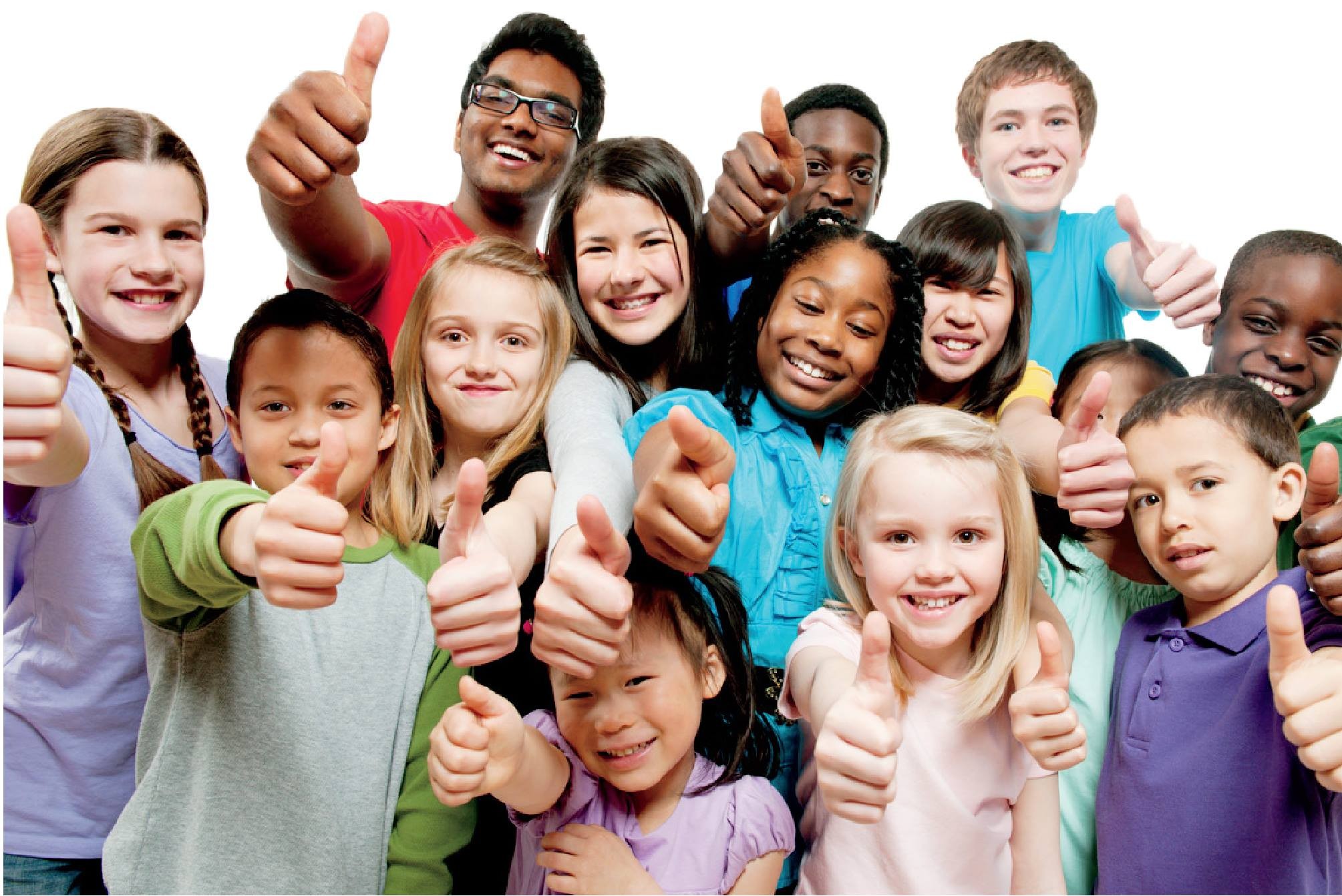
Photo: Pinterest
And finally This is My Ten Steps to Heal the World and Make Everyone, Young and Old, Happier and More Hopeful
- Details
- Written by: Kamran Mofid
- Hits: 1516
An invited Commentary, Analysis, and Opinion Article
By
Jamshid Damooei, Ph.D.
Professor and Director of Economics Program
Executive Director of Center for Economics of Social Issues
School of Management, California Lutheran UNiversity
And
A GCGI Senior Ambassador, Member, Advisory Board, GCGI and The Co-convener, GCGI-CLU Joint Conference, 2010
Inspired by the invitation from Prof. Mofid, the founder of “Globalization for Common Good Initiative” (GCGI), I decided to write this paper and present my opinion on an important question :’Can president Biden restore hope and bring Americans together?’
Making a prediction on whether presidential candidates make good on their promises when they become president is a hard task. However, I am hopeful, based on the start of Biden’s presidency with the signing of some 30 executive orders in his first two days since inauguration to reverse the tyranny of the previous government.
It is true that one reason for this remarkable number of executive orders is the sad state of the nation at the conclusion of the catastrophe of the presidency of Trump. Nonetheless, this shows a great effort on the part of the new president to set the clock back, which still leaves a lot more to be done for a mere clearing of all the dirt left behind from the last four years. It is safe to assume that a good number of them and other executive orders to be signed require the approval of the congress. However, this does not take away any credit from the new president and his intention to make good on his campaign promises.
The reality of our economic and social conditions is clear. We know what needs to be done to restore hope and give back to the overwhelming majority of Americans their dignity and unify them based on real change and not empty and hollow promises of change or fear of one another to cause confusion and create division.
Reversing what Trump has done is a good rule of thumb but we need much more. In order to demonstrate how the new president can restore hope and bring Americans together, we need to explore the sources of hopelessness and despair in the lives of so many American families.
I will present seven claims for showing the existing social and economic realities of the United States. I will provide evidence in support of my claims. My hope is that we can go forward, lift the fog and come to clear conclusions about what president Biden needs to do in the next four years and in particular in the first two years of his presidency to lead us towards a better America.
1- 90% of American Workers Have not Benefited from the US Economic Prosperity Since Mid-1970s
Josh Bivens and Lawrence Mishel from Economic Policy Institute in their study of 2015 take up the historic trend in creation and continuation of divergence between productivity and a typical worker’s pay in the United States since the mid-1970s. The following graphs show the economic realities of the past decades in a clear manner.
The above graph indicates that in the post-industrial era in the United States, workers began to lose their ability to enjoy a rate of growth in their wages that was chasing productivity since the end of war. It shows that prior to the mid-1970s productivity grew by 96.7% and the hourly compensation dovetailed with this trend at the rate of 91.3%. Workers in general felt that they shared the increased prosperity and the middle-income groups have been on the rise. Since the mid-1970s the US economy continued to reach higher productivity at an even greater rate (238.7%) but the increase in hourly compensation was less than half of this trend. This only increased at a cumulative rate of 109.0%.
The US economy created lots of service related jobs at much lower levels of wages and manufacturing sector shrank considerably. Labor unions were under tremendous pressure from within and outside. Globalization, primarily, serving the interest of giant corporations continued relentlessly, and race to the bottom with turning one group of workers (domestic) against trading partners (outside) continued without any delay or adjustment.
Many praised the miracle of new time and the rise of the global economy without any mercy on the plight of the workers on the two sides of the trading partners. The shipping of jobs was not necessarily a wonderful development for the workers in either side as many studies indicate. There was also no attention on the negative impact of such careless industrial development on the living environment of those countries and their people or across the border in other places. Good example of the negative impact on wages can be found in Mexico, where the real pay to workers in international comparison fell drastically since 1975.
This picture becomes clearer when we look at the distribution of prosperity brought forward by the process of deindustrialization in the United States.
This is a remarkable picture showing that 90% of American workers have settled for almost no real share of the prosperity during the last four decades. If we take the cumulative increase of 15.2% of 90% of American workers’ wage growth over the period of 34 years (1979-2013), the annual increase will come to 0.45% on an annual basis. It should be mentioned that the average yearly increase in the net productivity during the same period of time was higher than 1.8%. It is interesting to note that the top 1% received an annual increase of higher than 4%, which is greater than twice the rise in productivity. We may ask ourselves who were in this top group and why their compensation was far greater than the net productivity in the entire economy over this period of time.
We may go further and ask ourselves if this was the same trend everywhere else in the world and particularly in highly advanced and rich economies such as OECD countries or just one of the byproducts of the US economic system. The truth is that several OECD countries have been grappling not only with slow productivity growth but have also experienced a slowdown in real average wage growth relative to productivity growth, which has been reflected in a falling share of wages in GDP. However, in the same report, the study indicates that in a number of countries, decoupling has gone together with real median wage stagnation.
In the United States, for instance, annual real median wage growth over the past two decades has been around ½ per cent whereas it has been between 1½ and 2 percent in countries with similar productivity growth but no decoupling, such as France, Finland, Spain, Italy and the United Kingdom. We therefore have a question before us as to why this process is at its highest in the United States but not so critical in some other countries. Why American workers are not able to protect their wellbeing. Why the trend of prosperity has left them out and why their boat has not been lifted with the rising tide.
It is important to note that this is just the tip of the iceberg when we think about technological progress yet to unleash to a much greater extent for decoupling of productivity and wage levels. What we see is the expansion of global value chains, which have contributed to the decoupling of real median wage growth from productivity growth, but there have been significant differences in firm dynamics across countries. It is okay to see the outcome, but there is no excuse to leave what caused this outcome outside of our observation and exploration. We need to be assertive about ways and means of coming out of this debacle and this is in interest of everyone.
The United States suffers in multiple ways. The best ways to overcome this trend apart from the harm of deindustrializing is to look into better redistribution of income and see it as an investment to make it possible to withstand the short-term chaos of fall of income and depression of wages. Looking into Universal Basic Income (UBI) can be a viable and important solution, which deserves serious consideration. We need to think about providing opportunity for building skill in our workforce in general and in different communities across the nation. At the same time, active labor market policies play an important role in preserving the labor market attachment and skills of workers who lose their jobs. Labor unions should NOT be viewed as foes in reaching plausible policies. Labor unions are important partners in finding real solutions and to ensure that our economy is not to be focused and strive to only protect the interest of a tiny group of our corporate elites. Having a sustainable economic system that serves the interest of all is good for all.
The OECD report clearly indicates that where minimum wages are low or employment protection rules are particularly weak for some workers, raising minimum wages or strengthening employment protection for these workers could offset adverse effects of product market reform on wage inequality. This has been ignored for a very long time and it is promising to see that president Biden in his second day of office signs the executive order for raising the minimum wage to $15 and has given support to have a secretary of labor which is in favor of supporting labor unions. I like to go further and challenge the status quo which states that rising wages may at times work against some workers because in some cases rising wages may prompt automation and replacing of their jobs with machines. What these people or experts are saying is that it is okay to keep people in low pay jobs since they may lose it. This shows a lack of imagination and not being able to see the reality of our economies as the production systems evolves and bring with it, new changes, which call for new ideas and new ways of overcoming our challenges. We need to think about these transformations realistically and come to agree that doing what we have done before is not a good way to go forward.
2- American Dream Has Been Fading Since 1980s
The term “American Dream” still resonates with many people around the world. However, within the country not many people who experience the real life of working and raising their children believe it in their hearts. why? There are a number of studies that show the fading of American Dream in recent decades compared with what was going on in the 1940s and 50s. Among them Raj Chetty and his colleagues have been very vocal. Raj Chetty et. al. finds that 90% of children born in 1940 earned more than their parents, compared to 50% of children born in the 1980s. Absolute income mobility has fallen across the entire income distribution, with the largest declines for families in the middle class.
The authors of this study found that absolute mobility fell in all 50 states, although the rate of decline varied, with the largest declines concentrated in states in the industrial Midwest. The decline in absolute mobility is especially steep – from 95% for children born in 1940 to 41% for children born in 1984 – when comparing sons’ earnings to their fathers’ earnings. The hardest hit regions are the very areas which suffered most from deindustrialization in the United States and outsourcing of good manufacturing jobs to other parts of the world.
3-Americans Are Suffering from a Dysfunctional Health Care System
According to a report published by the United States Census in 2019, 8.5% of people, or 27.5 million, did not have health insurance at any point during the year (2018). There were also 28% of U.S. adults who have health insurance through their employer which were under-insured. At the same time, people who bought plans on their own through the individual market or the marketplaces were the most likely to be under-insured, with 42% reporting a lack of adequate coverage in 2018.
The problem of being underinsured surfaced as a main concern for public health in 2018, but it fell on deaf ears. According to a report published in February of 2019, people who are “underinsured” have high health plan deductibles and out-of-pocket medical expenses relative to their income and are more likely to struggle paying medical bills or to skip care because of the cost. Among adults who were insured all year, 29 percent were underinsured in 2018, up from 23 percent in 2014. Underinsured adults report having trouble affording their care and the consequences of not having a proper health insurance has always been obvious, which is inability to received care and delay important and life saving care, which results in premature death, loss of productivity, and on top of it increase in the overall cost of health care.
The report indicates that 41 percent of underinsured adults said they delayed needed care because of cost, compared to 23 percent of people with adequate insurance coverage. Difficulty paying medical bills: Almost half (47%) of underinsured adults report medical bill and debt problems –nearly twice the rate as those who are not underinsured (25%). Turning a blind eye on these problems is a regular practice in the United States and somehow the sensitivity towards what the consequences are despite accessible and reliable information does not appear to trouble the public or their representatives. It is troubling to see that people may be more alarmed by empty words such as socialized health care systems or socialized medicine than people actually losing their lives in tens of thousands.
Terms like socialized medicine or anything else with ‘socialized’ in their beginning has long become a license to rob people from their human right to essential services such as having access to health care directly in exchange for billions of dollars of profits for pharmaceutical companies. Companies are getting the support at a very low cost as they only pay millions of dollars to their elected representatives in all segments of the government in all levels and in both political parties. I wonder what is the rate of return for companies to have their profits risen compared with their political contribution. I am sure that buying political representatives brings the highest return on investment in the United States. The other side of their return is denying ourselves from real representation in the assemblies. Many countries around the world do not allow for any contribution for elections and pay all the expenses based on certain rules by taxpayers. I believe this is another great idea with probably the greatest return on our public investment on behalf of a democratic society for preservation of their democracy.
Not having access to health care became a very important red alert/flag in the US during the ongoing time of the pandemic. However, the truth is that thousands of Americans have been dying silently every single year due to our outrageous and inhuman health care system. Will president Biden put a stop to this practice and will we even see that life expectancy at birth in the US is not going to be determined by the zip code of where they live? I personally believe that it may happen, since the time for correction has long been overdue.
4- Americans Are not Threatened by the Subversive Forces of the Left
The Cold war has been over for three decades now. But as it appears, its ideas and the rhetoric apparently have not. Being called a socialist till recently and even now in many places is considered as an agent of the former Soviet Union and a traitor who is working to destabilize the country and take away the freedom of people.
Few really know anything about socialism, communism, the ideas behind them, and the historic lessons of it. Discussing them in our economics textbook is really rare and the corporate or even the national public media do not show serious interests in discussing them apart from some seldom documentaries, and thus, the subject has not received any interest in public lives of Americans.
The most recent examples are noteworthy and we have a few representatives who broke the tradition of the past and made it public that they can be considered as socialists. We all know the reluctance of most of our leaders in the Democratic party to support such an assertion. It is hard to separate their attitude from their Republican counterparts when it comes to the infamous title of being a socialist. This is sad, pathetic and deplorable. It shows that our leaders are still following the path of the cold war even that the war has been over for all that mattered. However, for the war mongers, arms traders, and those who are addicted to promotion of war for their own interests, the war is going on and they will follow it so long as people can be fooled and fears can be exacerbated and kept alive.
The question by now is very plain: How much of a difference we can find in what is going on in Germany, France, Finland, Canada, and many more, and what our socialists such as Bernie Sanders and his supporters are asking for. The policies can be summed up in universal health care, free education which include post-secondary education, protection of workers during financial crisis and economic debacles, shelter, early childhood education, equal treatment by law and law enforcement, establishment of a better tax system that rich corporations and people can pay their fair share of the tax, and a much better system of income distribution than in the United States. Are these radical? If they are then I have a suggestion for those who support them. There is not much difference between Angela Merkel and Bernie Sanders. Angela Merkel has been the Chancellor of Germany and leader of Christian Democratic Union in Germany since 2005, which is a conservative ruling party of that country, very different from Joseph Stalin!!
This makes it very clear that the problem is not neither about the threat of being forced to live the life of opposition during the time of the cold war in the Soviet Union nor the eradication of our freedom. The issue is to have a system in support of the interest of a few and to the detriment of larger and larger numbers of Americans and forcing them to a lower economic status in favor of unfettered capitalism. The problem is that continuation of such a system is not possible as we have seen more evidence of it in recent years. Rise of fascism which clearly describes the power of the former president and millions of his supporters should sound the alarm. If many continue to bury their heads in the sands, the fascist will not magically disappear and they find greater strengths and will return with the same or a different face. The show is not over so long as the roots are in fertile land.
5- Measuring the Success of the American Economy Through the Rise and Fall of the Stock Market Is Incorrect
In the eyes of millions of Americans, the main indicator of the functioning of our economy is to say how the stock market is doing. Is this a good way of gaging the working of the US economy? Let us start by stating that changes in the stock market have some relevance to the working of our economy. A significant proportion of our financial wealth is made in the financial capital market and an important portion of it goes through the stock market. Long term changes in the stock market can be one of the indicators of real assessment of return on investment in a number of industries. We also know that often there is a divergence in the value of the stock market and real return on investment and it is not surprising to see that the value of stock market be significantly overvalued for a considerable period of time. Many economists believe that currently the US stock market is highly overvalued and will see adjustments in its way.
The question is how the change in the stock market can truly reflect the wellbeing of Americans at any point of time. There are several ways to answer this question. One important way is to find whose interests the stock market serves. Many point out the importance of the stock market and its pivotal role in the retirement accounts of working Americans. Let us see what the latest information provided by the Board of Governors of the Federal Reserve tells us about it. The following chart provides a clear answer to the question based on the latest available information.
This chart shows that the top 10% of American own more than 94% of the stocks held in retirement and taxable accounts. This indicates that 90% only have a share of less than 6%, and bottom 50% of Americans have a share of 0.007%. This is the picture when it comes to the retirement of Americans. I do not wish to say that retirement accounts of 10 to 15% of Americans are not important. It is important. However, we have to also acknowledge that 90% of Americans do not have any significant stake in the success of the stock market with regard to its impact on their retirement. On the other hand, the impact of keeping social security alive and healthy is far more impactful in the lives of the overwhelming majority of retired Americans. The news about compromising the lifeline of the overwhelming majority of Americans through social security has been threatened by many of our political leaders and it is frightening to see the support of totally misinformed masses for these political leaders.
Let us take this argument further and show who really owns the stock market in the United States over the last half of the century. This can be understood from the following chart.
We can make a number of deductions from the above chart. One important message is that some 40% of the stock market belongs to foreign investors. This may make us feel good since others in other parts of the world show interest in investing in American companies. In some ways an expanding global economy brings a higher level of investment in one another. However, the other message from this picture may be the emergence and spread of global corporate ownership of capital within the world. The other important issue is the shrinking share of taxable accounts, when we look closer. Finally, it is hard not to admit that the benefits from the stock market directly impact the foreign investors and a small group of rich Americans. This will still be a relatively good take on the working of the stock market if companies in the US were prevented from using their extra cash to buy their own stock and therefore increase their values, which used to be illegal in the United States. This certainly brought considerable pay off for the CEOs but it is hard to believe that it can always support the needs of the capital markets.
The issue of buying back stocks has a long history and it was made illegal in the aftermath of great depression. However, the other side of this argument is that buying back stocks for the purpose of increasing their value may deprive the economy from the much-needed capital in other areas of investment. There are credible arguments about such impact and the extent of it by a number of scholars, which deserve closer look.
6- People have Lost Their Trust in Their Government as Consecutive US Governments Have Failed to Serve Their Interests
This is a difficult proposition and depends on what we consider the government is capable of doing. However, the government is and can be what the people want it to be. How decisions are reached and consensus are built depends on a number of issues which fall in the area of politics and political economy of the country. It therefore becomes crucial to discuss the ability of the system. One of the biggest problems in the United States is having misrepresentation about the issues and creation of confusion among Americans through corporate media. There are great journalists in the United States, but most of them are not known or regularly heard. The most popular media are the ones committed in serving the interest of the mega corporations and the real aim is to earn as much profit as possible. Every minute has a price and those who watch or hear their program have to pay twice. One way through buying what they often do not need (promotion of insane consumerism) and for a second time by being in danger of misinformation.
A good democratic government is the government by the people for the people. The key in this sentence is the people. How people receive information and use information they receive for the decision they make in selecting their representatives is a crucial element of a functioning democracy. There is a price tag for every office in terms of how much the candidate can raise and spend. It is true that from time to time that the biggest spenders do not get the trophy. It is also true that in recent years a number of representatives received considerable support from small donors and a good number of them won the race.
Money had its detrimental impact on US politics for a very long time. However, the Supreme Court decisions like Citizens United, brought a much higher possibility for the big money to have a much greater place and influence to hand pick the political leaders of the country in every level of representation. Super PACs allow billionaires to pour unlimited amounts into campaigns, drowning out the voices of ordinary Americans. Dark money groups mask the identities of their donors, preventing voters from knowing who’s trying to influence them. And races for a congressional seat regularly attract tens of millions in spending. It’s no wonder that most people believe the super-wealthy have much more influence than the rest of us.
The unhealthy association of money and the objectives of elected officials to serve the interests of their supporters is undeniable and its consequences are grave. The immediate impact is the attachment of the elected official in serving the interests of their sponsors instead of the people that they are supposed to be representing. However, it goes further and brings a general tendency among many potential candidates to set up their campaign in order to be attractive to their corporate and other rich sponsors. This may go as far as developing a relatively strong belief in policies which are outright against their own constituencies such as not supporting public health for all, early childhood education for all, making it possible for every American to have access to higher education and much more. They take advantage of their constituencies and present them with claims which do not stand any real scrutiny and some even appear to be convinced in the merits of their nonsensical arguments. The alliance of corporate media, corrupt politicians, and sold-out religious leaders are the very engine of the inability of the political leadership and a large segment of our elected officials to serve the interests of people in the United States.
The result of it is that Americans do not trust their own governments and in particular the federal government. The irony of the system is that the overwhelming majority of elected members of the government proclaim that government does not serve the interests of the people and yet they persist that they are different and should be elected as the representative of the people so they can magically be the good government and save the people from the tyranny of their own government. The most famous quote is the one by president Reagan in his inaugural speech: “Government is not the solution to our problem, government is the problem”
Well, it may sound very profound to some at the time but it is hard to escape the fact that much of the onslaught of the interest of working people of America through promotion of corporate dominance and a set of economic policies known as neoliberalism in the eyes of many scholars as the source of problem in our today’s world started as of his time.
The following chart may give us a better understanding of the timeline of distrust of Americans since the late 50s and early 60s.
Source: Ourworldindata; https://ourworldindata.org/grapher/public-trust-in-government
The fluctuations have their own significance. However, it is very clear the last two decades have been particularly troubling. There is a lot more to be known in order to draw a correct conclusion from the above graph, but one issue is very clear and that is the falling rate of trust in our government. We need to wake up and have the courage to see the reality of our time and look for a possible solution.
Our political leaders need to be elected without any influence of the big money. For example, it is not hard to accept that those who receive money from big pharmaceutical companies are not going to leave their corporate supporters. Accepting money and being attached to an office for our own sake bring corruption and this is not in relation to one party. Both parties have a strong share of the blame. Phony populists may win the day but their policies are doomed to fail.
Donald Trump came to office with the promise of cleaning the swamp. He left the office with the worst swamp that this nation can ever remember. He, his family, and his cronies sold everything they could find for cash. His supporters in the congress and the senate supported him all along and even now, because they are counting on his support to save their job. Let us make no mistake about who these elected representatives are serving. They are serving themselves. This is the tyranny of an electoral system that fails a democracy in action.
7- Serving the Common Interests of the Global Society is to Serve the Interests of Our Own
We may have a different take from the experience of the last four years of President Trump. I personally consider the past four years as a painful historic experience for the United States and its people, although many apparently do not realize it. Four years of a president that in his inaugural speech warned the world that the United States will be putting its interest first. He said:
“ We assembled here today are issuing a new decree to be heard in every city, in every foreign capital and in every hall of power. From this day forward, a new vision will govern our land. From this day forward, it's going to be only America first, America first.”
It is rather unfortunate that how many people in the United States and around the world may say that this is a correct message and governments of countries should abide by it. Others may say who does not put the interests of its own nation before any other countries. This is the very core of the problem, which is seeing the interest of a nation as it can exist in isolation from the interests of other nations. This indicates an utter inability to comprehend the very basic element of our global community as it prevails within our planet.
The COVID-19 pandemic has brought destruction to the lives of billions around the world. It is a catastrophe, which is still going on and its fullest extent of damage is yet to be known. One of the most important deductions from COVID is that the threat of it is only based on our biological existence as humans.
The rich may protect themselves better because of having access to resources, but the impact and consequences of the virus are the same for everyone. We are all in it together, so to say.
Looking ahead we may be exposed to countless similar conditions with regard to our biological frailty to infectious diseases. The most important element of such recognition is that separating one country or nation from others is totally meaningless. Herd immunity can only be meaningful when it is global. Pandemic is not the only reminder of our common heritage and destiny as human beings. Almost every aspect of our struggle against the onslaught of global warming and unsustainable environment is a feature that threatens us all as one on one planet, called Earth. Flooding and destruction of habitat, forced migration and immigration, and all other challenges of being forced to adjust and make our way forward is global and will impact us all.
If we open our minds and can go far beyond the physical aspects of our shared existence, violence against each other can be considered as an infectious disease that can deny global society from its peaceful coexistence. The idea of violence brings more violence is not a mere slogan. There are many examples of it in many parts of the world. Social justice is not an empty word, it is the remedy for returning peace and bringing balance to our tormented, isolated and disenfranchised societies and communities at home and beyond.
World poverty is not a defect or guilt of a group, it is a clear indication of our collective failure to live at a time and not do everything possible to eliminate the death of millions of people from malnutrition or hunger, which is many times as the causality of pandemic war we are wrestling with. Around the world, more than enough food is produced to feed the global population. However, more than 690 million people still go hungry to bed every night. After steadily declining for a decade, world hunger is on the rise, affecting 8.9 percent of people globally. From 2018 to 2019, the number of undernourished people grew by 10 million, and there are nearly 60 million more undernourished people now than in 2014. The calamity of being hungry and suffering from food insecurity have come to our own country during the time of pandemic.
Edward B. Barbier and Joanne C. Burgess (2020) argue about the high vulnerability to the COVID-19 pandemic of developing countries. They demonstrate that this problem in part is due to the lack of international support for ensuring progress towards the 17 Sustainable Development Goals (SDGs). Yet the mounting financial burden faced by all countries means that additional support is unlikely to be forthcoming in the near future. The authors argue that finding innovative policy mechanisms to achieve sustainability and development through cost effective measures and policies are essential for all countries. This requires identifying affordable policies that can yield immediate progress towards several SDGs together and aligning economic incentives for longer term sustainable development.
Manoj Kr. Bhusal (2020) takes a different and rather critical view and, to a great extent, a pessimistic one about the fallout of COVID-19. The author predicts strong tendencies towards greater global challenges for political processes, particularly on the instruments of democracy and the rule of law. He argues that learning from various reports during the pandemic, the post-pandemic world will be characterized by populism, nationalism, intensified citizen surveillance, and curtailed and compromised individual liberties.
Gordon Brown and Daniel Susskind (2020) bring a different perspective in their analyses of COVID-19 and its impact on international cooperation. They argue that many of the tasks involved in public health, and in particular those involved in the control of an infectious disease like COVID-19, ought to be treated as global public goods (GPG), which can only be delivered through international cooperation.
While national governments are able to change domestic law or build national institutions to ensure the optimal level of a traditional public good is secured within their borders, there are no provisions in international law to impose obligations on other sovereign countries to ensure the optimal overall level of a GPG is secured without their consent. The importance of creating an international mechanism for defending the global community against future pandemics and other global calamities requires new initiatives and practical mechanisms that can be pragmatic and functional. The existing international setting for creating such capacity requires innovative thinking and cooperative spirits within the global society that can perceive all nations as equal partners without the endeavor to subjugate resource-scarce communities as lesser companions. Reaching such a level of understanding within the prevailing power struggle and sense of superiority among a good number of developed countries presents a bleak possibility for success.
Conclusion and The Final Answer
Being optimistic is a positive human quality and we do not have any definitive reason to be pessimistic about what President Biden may do or do not. There is, however, no myth about how he can restore hope and bring the nation together. We are challenged by the empty claims of populists or deceptive policies of war mongers, polluters, corporate oligarchs, and their installed representatives and lobbyists. They have deceived and can continue to deceive people and take advantage of them. However, they will never be able to solve problems. They prolong the misery and make the situation even more difficult and complicated. If constructive transformation cannot come from peaceful and timely policies for solving our problems, the alternative is a path towards destruction with pain and violence. President Biden needs to look into the following most important actions and bring everyone to be a part of his campaign for real change. The following changes are necessary:
- We need an economic system that can support and provide the basic needs of our own people regardless of their prevailing individual or group economic conditions. We need important tax reforms, which can create a better distribution of income. Poverty may not be reduced drastically within a few years, but we can make sure that people and the families in poverty do not live the life of poverty. Financial means for supporting our own people has been and is in the ability of the US economy with high productivity and the emergence of a robust production sector through innovation and new discoveries. President Biden must take initiatives to drift away from focusing on the benefit of the 1% towards the betterment of the lives of 99%.
- Some of the most essential elements of a balanced and humanly conceivable life on Earth are not based on demands, but rather on meeting the needs of the individuals, groups, and communities. Meeting the existing or emerging needs is essential for the continuation of life, but those with needs may not be able to pay for them, and therefore, considering them to be demands is incorrect. Continuing with the perception of responding to demands or wants is an ill-founded concept, which in times can create human disasters, the likes of which we have seen and continue to see during this pandemic. This is one of the primary reasons that the U.S. economy is performing miserably in responding to COVID-19, and this can be seen in a number of other countries around the world as well. The US should also work towards creation of a system that provides Global Public Good and Services.
- We need to join and support international cooperation and development of a shared global vision for change. This is vital, and at the same time, very complex.
- There is a dire need to democratize the US economy. Our economic system needs fundamental transformation through a greater role of other players such as labor unions, civil societies, consumers, and nonprofit entities, workers’ co-ops, and much more. We need reforms and to get ourselves away from an absolute adherence to market-based economic principles toward instead a focus on non-market theories of economic democracy. We need to create a reform agenda supporting practical examples of decentralization and economic liberalization to democratic cooperatives, public banking, fair trade, and the regionalization of food production. This may be too much for a few years, particularly when we have a long journey from where we are to where we can be or should be. However, change never happens if we do not start the process for the change to occur.
- President Biden, history, despite its grim tails of human catastrophe and loss, also tells us how destructive forces allowed humanity to see the road to recovery for better lives in the future. This is not to glamourize the grief of the loss of human lives, which is always tragic and heartbreaking, but it is a call to be vigilant and alert regarding the lessons that can be learned. The most important lesson of COVID-19 is to reject the notion that every country and nation must solely focus on their own gains, presuming that the world is based on zero sum gains.
- President Biden, the corporate bottom-line does not serve the common good. There is a considerable positive externality in both education and the creation of reliable information and appropriate levels of public discourse about public information and news, which often do not find their way to the bottom-line of our international corporations. Investing in both areas are important and have a high return on investment, and should be fully utilized.
- Striving for social justice is not a slogan, it is a recipe for a high return investment in members of our communities beyond the restrictive boundaries of our collective prejudices and misunderstandings of ourselves as interdependent members of the same community. Social justice is not just a moral imperative; it is meeting a necessity for reaching our full potential as a community at the local, national, and international arenas.
- And finally, sustainability is to understand and create a path for continuity and prosperity within every community.
- My Poem of the month (February): Let Hope and Healing Begin to Brighten the Covid Darkness
- The Golden State’s Ode of Joy to the US: 'California is America, only sooner'
- President Biden, his Faith and the Healing of America
- Can President Biden Heal and Build a Better America, where Goodness is Valued above Greatness?
- Good Riddance to Trump: A Disgraced Man who Never Cultivated Goodness and Humanity
